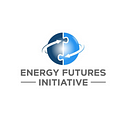New EFI Study on the Role of Natural Gas in a Decarbonized World

In the last several decades, natural gas has become an increasingly important fuel in the global energy mix, reaching its highest share of global demand in 2019 (23 percent) and nearly doubling its share from a half-century ago. Around the world, natural gas has offered pathways for economic growth in the developing world, while sustaining industrial and economic activity in the developed world.
In some regions, natural gas has improved local air quality and reduced greenhouse gas (GHG) emissions. At the same time, natural gas is a major contributor to climate change: burning natural gas emits carbon dioxide, while its production and transportation emits methane.
This week, EFI CEO Ernest Moniz and EFI Principal Melanie Kenderdine participated in the launch of EFI’s latest report: The Role of Natural Gas in a Decarbonized World — Regional Insights. At a virtual event hosted by the Atlantic Council Global Energy Center, Kenderdine presented key findings from the report, detailing the future of natural gas in various regions across the world.
The report was informed by eight workshops which brought together stakeholders from key regions across the world to explore the role of natural gas in the transition to low- and zero-carbon energy systems. The report explores a range of issues in the context of global and regional energy policy, climate policy, trade, investment options, and geopolitical and energy security implications.

As the world accelerates along the path to deep decarbonization, the role of natural gas in the energy transition is evolving and varies from region to region. Even as countries look to transition to clean energy sources, natural gas could play a key role in fuel switching, reducing the carbon intensity of hard-to-decarbonize industrial sectors, and serving as a complement to variable renewables if paired with decarbonizing technologies or pathways such as carbon capture and blue hydrogen.
For more information, read the full report or view the recorded webinar.
